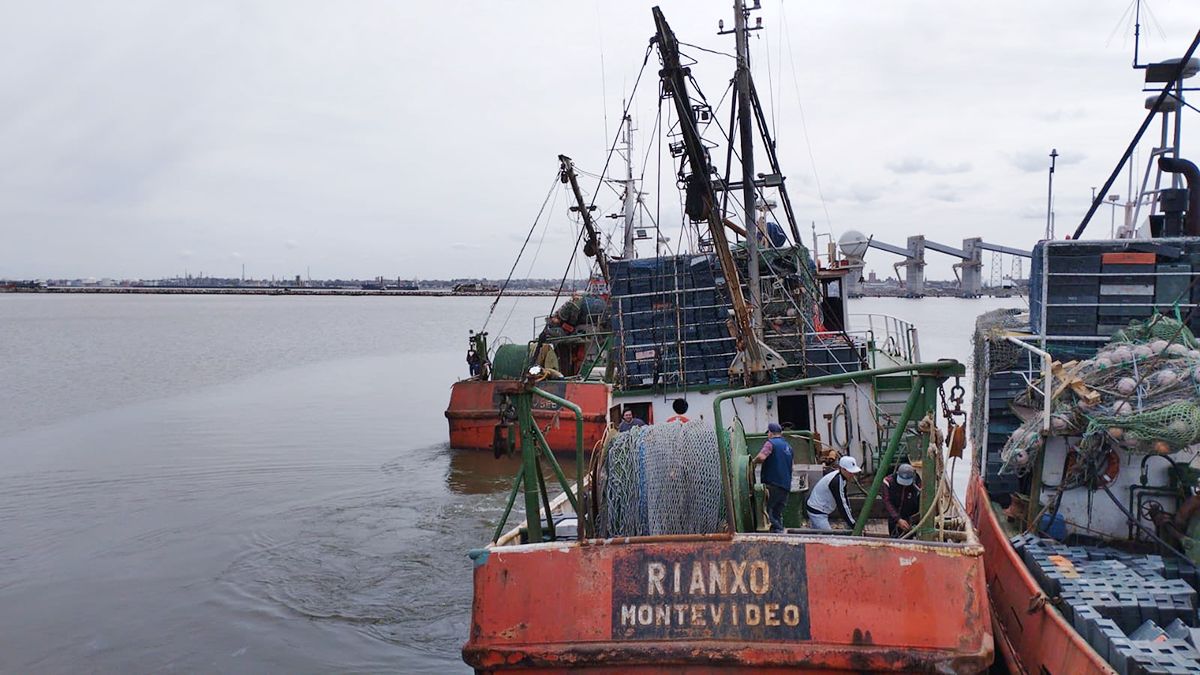He fishing sector of Uruguay continues to go through a critical situation that leads it to have 75% of its ships inactive by decision of the companies, which do not see the activity as profitable under current conditions. Beyond the economic impact of having an industry practically stopped, workers are also affected but, for the moment, they have had no response from the government.
Fishing workers denounce an “absent State” while the sector continues without resuming activity, by decision of the companies, which have most of the vessels stopped. “At the moment we have not found a solution. “It was something informal with the idea of trying to reach out a little more to see if we can have some type of negotiation,” he said. Leonardo Musetti of the Single Union of Fishing Skippers a Underlined, after a meeting with the Minister of Work and Social Security (MTSS), Mario Ariztiand the Director of Labor, Federico Daverede.
“What we want is to negotiate and get out as soon as possible. The issue is that the businessmen continue to say, more or less expressed a vision, that the State is not giving them anything and that in that situation they cannot work. We think that is not the case, that there is 25% of the fleet that is working,” said Musetti.
Complaints against companies
Among its demands, the single fishing union asks that the law be complied with, the permissions to vessels that have been stopped for more than 180 days and a tender is called to allocate those quotas to other companies.
“The maritime interguild is already making the corresponding complaints in the Ministry of Livestock, Agriculture and Fisheries (MGAP)here in the Ministry of Labor, in Dinara. The law is clear,” he stated. Facundo Mountain of the Naval Machinists Center.
“There is 25% of the fleet at sea, they have worked before April 30, they are working now, they have signed collective agreements with salary increase and recovery and therefore there is no clear justification as to why they are unemployed. Therefore, if it is not profitable for them to close, return the permits,” Montaña said.
In that sense, he stressed that it is “a business strike”, that the MTSS calls them to “informal meetings without answers” and that “the MGAP does not appear”, so they talk about “a absent state”.
He recalled that the workers are “without unemployment insurance, without Fonasa, without any type of coverage.” There are companies that have not been working for more than seven months.
The conflict in the fishing sector
A month ago, the Chamber of Fisheries Industries of Uruguay (CIPU) and the Chamber of Fishing Shipowners of Uruguay (CAPU) They warned that the sector, currently mostly paralyzed, will not be able to return to activity and refused to start labor negotiations within the framework of the MTSS.
“Taking into account that the response of the Executive Branch to the proposals made by the business sector to confront the fishing crisis does not modify the current situation and that it represents the economic unviability of the sector, CAPU and CIPU consider that the conditions in a general sense are not met to resume the operabilitybeyond the decisions made by each company,” says a joint statement published at the beginning of May.
The fishing chambers, which have been putting pressure on the government of Luis Lacalle Pou to initiate several regulatory changes in the activity, maintained the strong tone against the Executive by holding it responsible for “signing the death certificate of fishing in Uruguay”, recalling that at least 60% of the fleet is paralyzed and that more than 2,000 jobs were affected.
Specifically, CAPU and CIPU denounce the unviability of the activity outside the harvest due to the high costs and demand that the government make some changes that collaborate with a lowering of costsamong them modifying decree 233 of 2009 by which a bonus retirement calculation for fishing workers.
There is also a demand to return to a scheme of contributions for fictitious contributions – as was done at some point – and not for the real salaries of the workers. Another point refers to the accident premiums of the Insurance Bank (BSE)which are noted as among the highest in the country.
Source: Ambito




